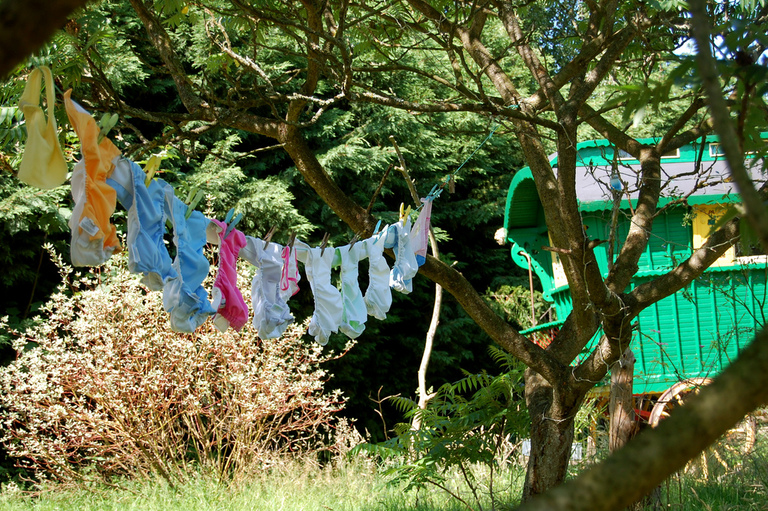In modern societies, disposable diapers constitute a significant percentage of municipal solid wastes. They have been traditionally landfilled or incinerated as only limited recycling processes are being implemented in some parts of Europe. With the implementation of separated collection systems for the organic fraction of municipal solid wastes (OFMSW) and the need to preserve the environment, compostable diapers have appeared in the market to avoid the main environmental impacts associated to non-biodegradable disposable diapers. In this study, a full-scale composting of door-to-door collected OFMSW with a 3% (w/w) of compostable diapers has also been carried out. Previously, lab-scale experiments confirmed that almost 50% of carbon of compostable diapers is emitted as CO2 under aerobic controlled conditions. The results obtained at full-scale demonstrate that both the composting process and the final end product (compost) are not altered by the presence of compostable diapers in crucial aspects such as pathogenic content, stability and elemental composition (including nutrients and heavy metals). The main conclusion of this study is that the collection of the OFMSW with compostable diapers can be a new way to transform this waste into high-quality compost.
Maria Mestre | Ignasi Puig
2013
Waste Management
Colón, J., Mestre-Montserrat, M., Puig-Ventosa, I., Sánchez, A. (2013) Performance of compostable baby used diapers in the composting process with the organic fraction of municipal solid waste. Waste Management, 33 (5): 1097-1103.

